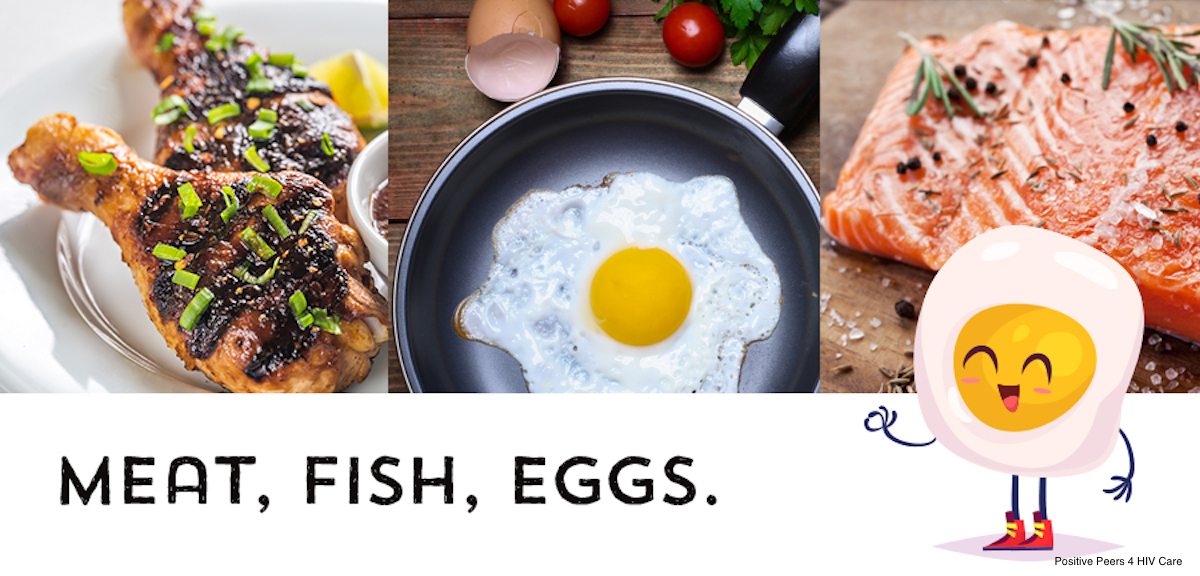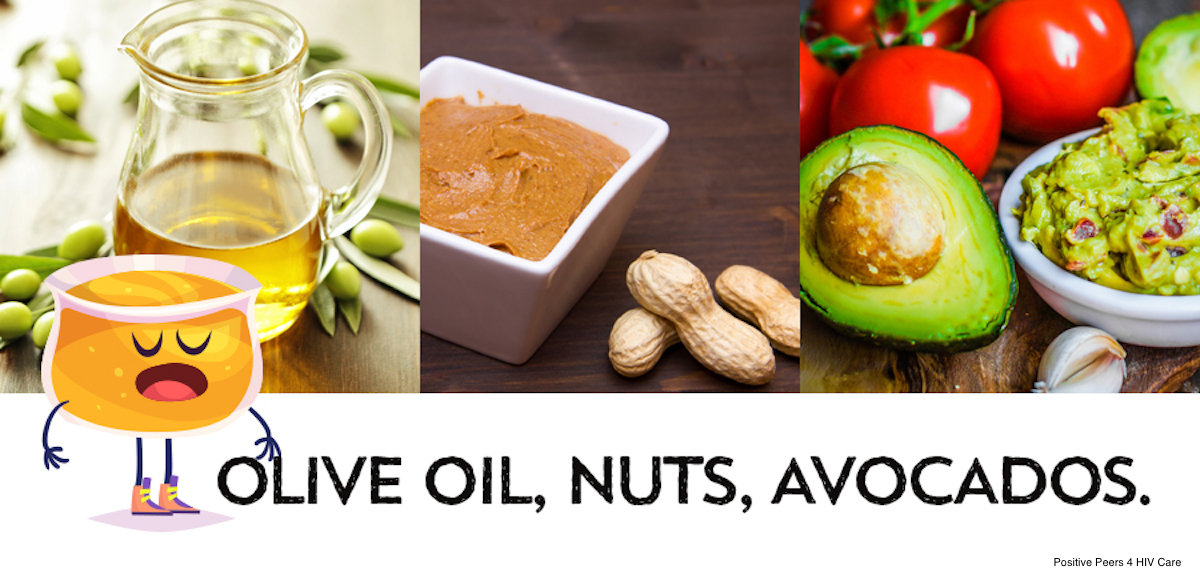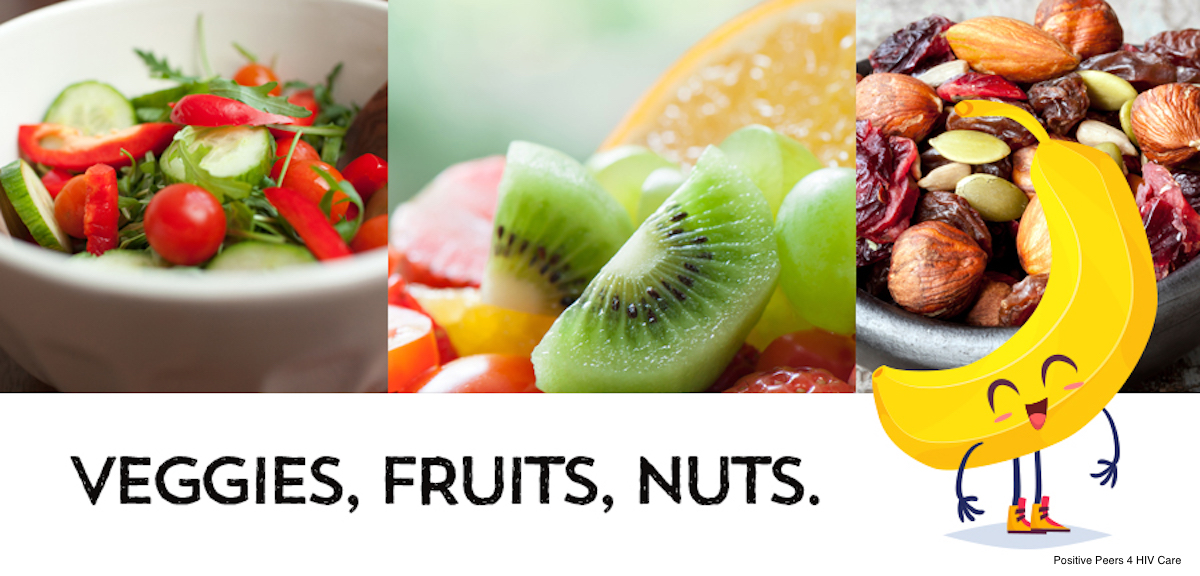By: Ann Avery, MD, Infectious Disease Physician at MetroHealth Medical Center
Eating lots of fruits and vegetables and taking it easy on sweets and fatty foods is great advice for anyone.
It’s even better advice when you’re living with HIV.
HIV medicines just suppress the virus; they don’t rebuild your immune system. Your body has to do that on its own, and healthy nutrition provides the right environment.
Let’s take a look at the right kind of foods to eat when you’re living with HIV:
Protein: Your body uses protein to build and repair damaged muscle and other tissue. Milk, eggs, red meat, poultry (chicken, turkey), fish and yogurt all contain protein. Plant-based foods like almonds, peanuts and soy also have lots of protein. It’s good to understand that some protein sources are healthier than others. For example, doctors and nutritionists recommend limited red meat in your diet, and getting protein from poultry, fish, and plant-based foods.

Fat: For all the horrible things we hear about fat, it is a nutrient that your body saves like money in a bank and uses later if it’s needed. You need some fat; the trick is not consuming too much. It also matters what type of fat you’re eating. Extra Virgin Olive Oil and avocados are sources of good fat that your body uses to stay healthy. On the other hand, fast food is high in saturated fat which is bad for the body.

Carbohydrates: Your body needs carbs for energy — but you have to be careful not to over-consume them. Some of the best carbs are whole-wheat bread, potatoes and brown rice.
Come join our private, stigma-free, supportive community.
Health management tools with medication & appointment reminders.
Social networking in a community conversation & private chats.
Dietary fiber: Fruits, vegetables and nuts are rich in dietary fiber, which is essential to good digestion.

Vitamins and minerals: Most natural, unprocessed foods are rich in vitamins (such as vitamin A, B, C, D and E) and minerals (including iron, copper and zinc) that all the body’s systems depend on to do their jobs. Fruits, vegetables, nuts and grains usually have lots of vitamins and minerals.
Don’t Forget to Stay Hydrated
Everything your body does requires a reliable supply of pure water. When you’re dehydrated, your entire body has a tougher time doing its job. Most experts suggest you try to drink 8 glasses of water each day.

Getting the Best Nutritional Advice
HIV and the drugs to fight it affect everybody differently. Talk to your doctor about getting the right foods in the right quantities at the right time of day.
Also, ask your doctor to recommend a nutritionist who specializes in HIV.
One great thing about a good diet: You’re totally in control of what you eat. A healthy diet puts you in the driver’s seat at a time when it’s easy to feel trapped by forces you can’t control.
You gotta eat. You might as well do it in the best way you can.

Positive Peers is made possible through a U.S. Department of Health and Human Services Health Resources and Services Administration, HIV/AIDS Bureau Special Projects of National Significance (SPNS) Grant to The MetroHealth System. Click here for more information about the SPNS grant initiative.
Positive Peers is a private app for young people living with HIV. Learn how you can earn rewards for your participation.
